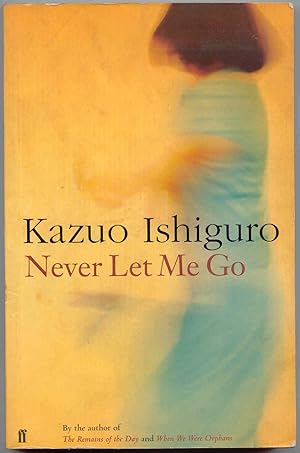


The narrator, Kathy H, is thirty-one as the book opens, and has been a “carer” for nearly twelve years. For the book is set in the past, not the future: “England, late 1990s” it is specified before the novel begins.

He has certainly given readers nothing to foster such a misreading. Ishiguro says he’s perfectly open to people reading it as a chilling warning about biotechnology but feels they’ve missed the inner heart of the book if they take it that way. Ostensibly a work of science fiction, Never Let Me Go is really nothing of the kind. I was looking for a situation to talk about the whole aging process, but in such an odd way that we’d have to look at it all in a new way.” Actually, he added, the novel is hardly about the aging process and certainly not about old age but rather a way of explaining certain aspects of “what happens to you as you leave childhood, face up to adulthood, and then face up to your own mortality.” One morning he heard a debate about biotechnology on the radio and seized upon the concept. It was very much in the air,” Ishiguro says.

“Around that time, in 2001, there was a lot of stuff about cloning, about stem-cell research, about Dolly the sheep. Only around 2001 did the critical idea of dropping the nuclear element and turning instead to cloning come to him. He took the project up again between The Unconsoled and his fifth novel, When We Were Orphans, published in 2000, but then again abandoned it. He could not finish these stories, however. “I thought that they were going to come across nuclear weapons that were being moved around at night in huge lorries and be doomed in some way,” resulting in a life span of thirty, rather than eighty, years, he told the Paris Review. In 1990, even before starting The Unconsoled, Kazuo Ishiguro had been working on a project called “The Students’ Novel,” about “these strange young people living in the countryside, calling themselves students where there’s no university.” There was some kind of strange fate hanging over them, he recalled, that was related to nuclear weapons.


 0 kommentar(er)
0 kommentar(er)
